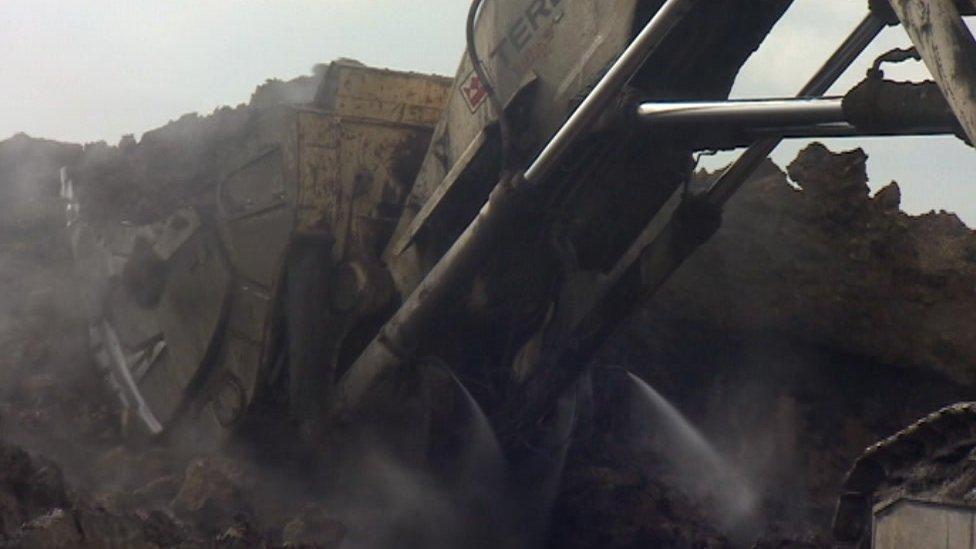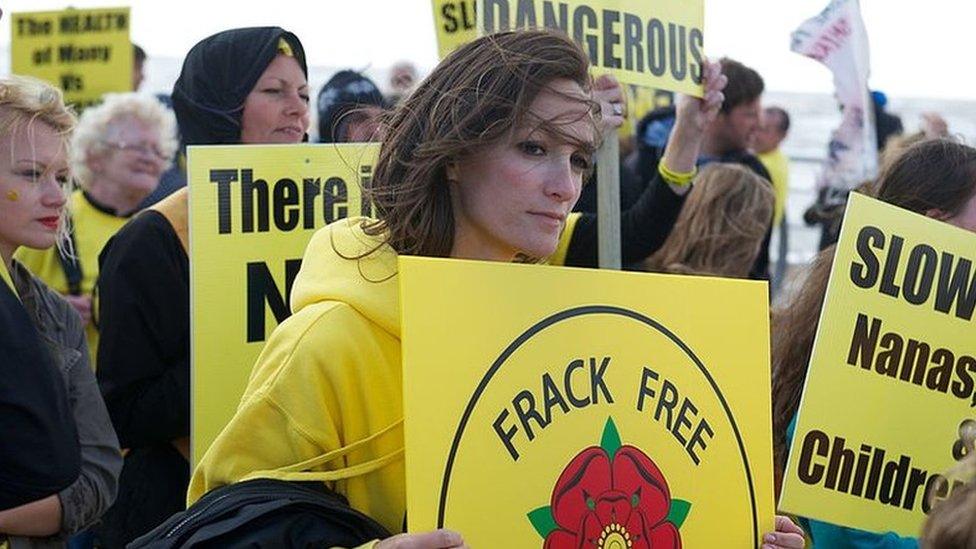Could the North East be key in the new dash for gas?
- Published
- comments
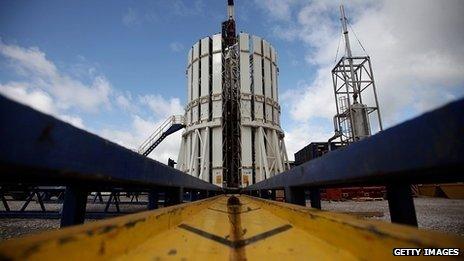
Fracking or hydraulic fracturing is a way of unlocking shale gas from underground
When Conservative peer Lord Howell said "uninhabited, desolate" parts of the North East were ripe for fracking he seemed to have inserted foot firmly into mouth.
But might he have a point? Could the region unlock cheap energy and create jobs by exploiting shale gas under the ground?
National park
Shale gas is certainly present in the North, but perhaps not always in the "desolate" and post-industrial areas Lord Howell was probably alluding to.
There is the potential for shale gas in Northumberland, but in fact, the search for it is likely to happen first in rural North Yorkshire, with much of it thought to be under the North York Moors national park.
But even if the Conservatives generally are keen on the idea of fracking or hydraulic fracturing of the gas, one of their local MPs isn't.
Gas companies currently have 11 licences to explore the Thirsk and Malton constituency of Anne McIntosh. That doesn't necessarily mean fracking could start any time soon but it's making the MP nervous.
She said: "Obviously when I saw the potential reservoir of shale gas that covered most of the constituency and most of the national park it was very worrying indeed.
"As yet it is early days but I do believe there are very serious environmental issues and if fracking took place, I do not believe the countryside will be left in the same state it currently is."
And other Conservative MPs could face the same dilemma. There are three licences to explore Robert Goodwill's Scarborough and Whitby seat; three in Julian Sturdy's York Outer constituency; one licence in William Hague's Richmond and one each in Tory Penrith and the Border and Carlisle.
One licence also exists in Lib Dem Redcar, but the only Labour seat with a licence is a small part of Stockton North.
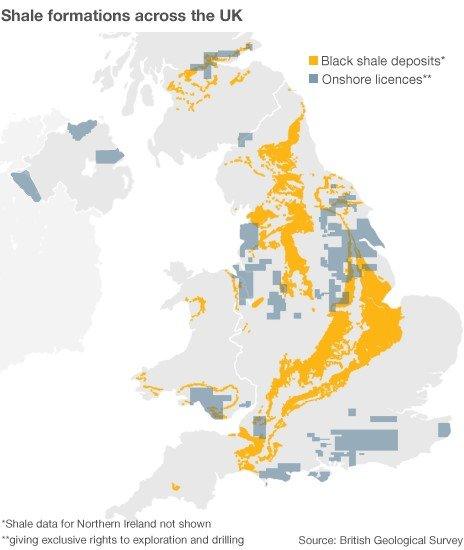
Pressure groups
Any of those MPs may have to take notice of a band of people increasingly vocal in their opposition to fracking.
There are growing numbers involving themselves in pressure groups across the North.
They say they're not eco-warriors, but ordinary citizens who've done their research and don't like what they've discovered.
They're particularly worried that water supplies could be contaminated by the chemicals that are injected into the ground during fracking, and from the gas that's released.
Ellie Strange lives in Saltburn close to the North York Moors, and helped found Frack Free Cleveland because she's so concerned.
She said: "We have looked at what's happened in the USA, Australia and Canada and it's been an unmitigated environmental disaster. It affects people's health, the food chain and it affects the water.
"We do not feel there has been enough research into this before it goes ahead."
Earth tremors
Those are claims that are rejected by the industry and many in the government though.
It has been established that fracking can cause earth tremors, albeit on a fairly small scale in the UK.
But Professor Richard Davies, an expert in fracking at Durham University, believes some of the more dramatic claims don't stand up to scrutiny.
He said: "There is no evidence supporting fracking itself causing water contamination. Fracking is the process of cracking rocks underground.
"The issue we need to be more careful about is the drilling and cementing of boreholes which can leak but that is the same for any drilling by the gas and oil industry.
"So fracking is not the problem, it's more the extra traffic, potential spillages and making sure those boreholes are sealed effectively."
But there may be other ways of unlocking the potential of the North's fossil fuels without fracking, and without doing anything onshore.
There are still billions of tonnes of shale and coal out under the North Sea, and one Newcastle company believes it can turn both into gas and cheap energy.
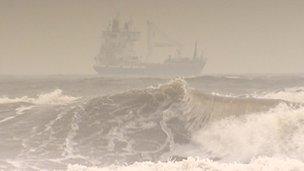
Billions of tonnes of coal and shale lie off the North East coast
Deep gas winning involves heating the shale and coal to produce energy.
Five Quarter - the company developing the technology for the North East coast - believes it can find ways of making it carbon-neutral and at the same time generating other chemicals and gases North East industry needs.
And it believes it can create up to 1,000 jobs and safeguard traditional industries by supplying affordable power and raw materials.
Dr Harry Bradbury, the firm's founder, said: "It's estimated there is ten times as much shale gas off the coast as there is onshore, and we could get dramatically more than that from coal. We have not just decades, but centuries worth of potential in unconventional gas that buy us the time for a renewables future.
"If we do not go down that route we would see our process and chemicals industry closed and jobs go with it."
But the anti-fracking groups also have concerns about deep gas winning, and believe it is a mistake to turn back to "dirty" fossil fuels.
And this is the problem that could yet face the government. It will need to convince communities that a new dash for gas is safe, and won't further damage the environment.
There may be time though to work on people's concerns. Professor Richard Davies believes serious exploitation of shale gas could be five or even 10 years away in the UK.
Plenty of time then to debate whether coal and shale gas could secure future prosperity, or cause environmental ruin.
- Published27 June 2013
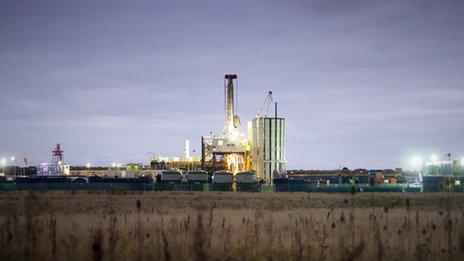
- Published9 May 2013
